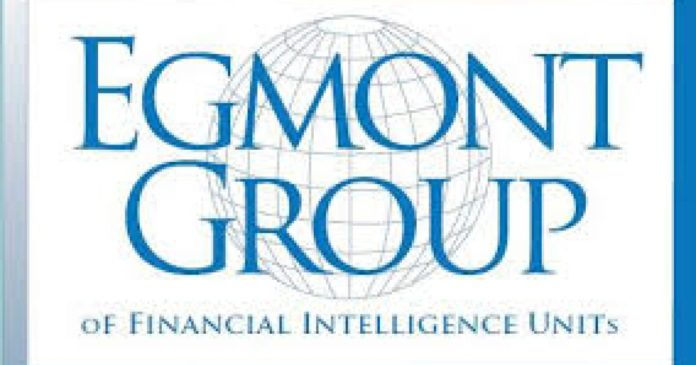…as FG is poised to meet commitments
The Financial Action Task Force (FATF) has reiterated the earlier threat of the Egmont Group of Financial Intelligence Units to suspend Nigeria from the group if it fails to meet its commitment to qualify for membership.
The latest warning to the Federal Governmen coming from FATF is that failure to implement the Egmont Group requirement will have serious consequences as it will begin by suspending its planned high level mission visit on November 20th-21st, 2017 to determine whether Nigeria has met the FATF standard.
However, the Federal Government is not resting on its oars to do the needful to attain the FATF demand on the Nigerian Financial Intelligence Unit to qualify it for membership under the Egmont Group of FIUs.
To achieve this, then Acting President, Professor Yemi Osinbajo, SAN had constituted a powerful adhoc-committee chaired by Senator Chukwuka Utazi, the chairman, Senate Committee on Anti-Corruption and Financial Crimes with specific terms of reference to ensure the nation meets the requirements as demanded by Egmont Group and FATF.
It has since concluded its work and submitted its report to the presidency.
However, in a recent letter by the Financial Action Task Force (FATF) addressed to the Honourable Attorney General of the Federation and Minister of Justice, Abubakar Malami, SAN and signed by its President, Santiago Otamendi, it expressed concern of Nigeria’s repeated failures of its Financial Intelligence Unit (FIU) which may still lead to its suspension.
The purpose of its visit in November is to confirm FG’s level of commitment to its objectives, especially its standards.
FATF secretariat in France through a letter dated 29 August 2017 titled, ‘Suspension of Egmont Group membership status of the Nigerian Financial Intelligence Unit’, also affirmed that the visit will provide FATF member nations the assurance that Nigeria is ready to undergo a successful mutual evaluation within three years.
The full letter read thus: “I have been informed by the President of the Egmont Group of Financial Intelligence Units, Mrs. Hennie Verbeek-Kusters, of the recent suspension of the Nigerian Financial Intelligence Unit’s Egmont Group membership status, following the Egmont Group’s decision of July 5th 2017.
“I would like to share with you our serious concerns regarding the reasons that motivated this decision, notably the repeated failures of the FIU Nigeria to address concerns regarding the protection of confidential information as well as concerns about the legal basis and the FIU’s independence via-a-vis (sic) the Nigerian Economic and Financial Crimes Commission (EFCC). These issues are indeed core elements of the anti-money laundering and counter-terrorist financing framework promoted by the FATF recommendations.
These issues could therefore have implications on the Federal Republic of Nigeria’s membership process for the FATF, if not addressed timely and properly ahead of the High Level Mission originally scheduled for 20-21 November 2017.”
It added that, “The purpose of this visit is indeed to confirm the Federal Republic of Nigeria’s high level commitment to the FATF objectives, including full and effective implementation of FATF standards, and to provide FATF members with the assurance that Nigeria is ready to undergo a successful mutual evaluation within 3 years.”
“In order for this membership process to move forward, I would encourage the Federal Republic of Nigeria to take all necessary measures to address these concerns and ensure that conditions for a successful High Level Mission are met before November 2017. I look forward to hearing from you on the steps taken by the Nigerian Government to further demonstrate your commitment to FATF”, the secretariat concluded.
To recount, the Egmont Group at its 24th Plenary of the Group held in Macao, a Chinese Special Administrative Region (SAR) from July 2-7, 2107, chaired by Mr. Sergio Espinosa, chair of the Egmont Group, Nigeria was suspended for lack of the independence of the Nigeria Financial Intelligence Unit (NFIU) from the Economic and Financial Crimes Commission (EFCC).
Besides, its decision by consensus to clampdown on Nigeria arose from repeated failures on the part of the NFIU to address concerns regarding the protection of confidential information, specifically related to the status of suspicious transaction report (STR) details and information derived from international exchanges.
The Group however, expressed its hope that the Nigerian authorities will address these concerns to enable it lift the suspension as soon as possible.
About 354 participants representing 112 Financial Intelligence Units were in attendance at the meeting.








